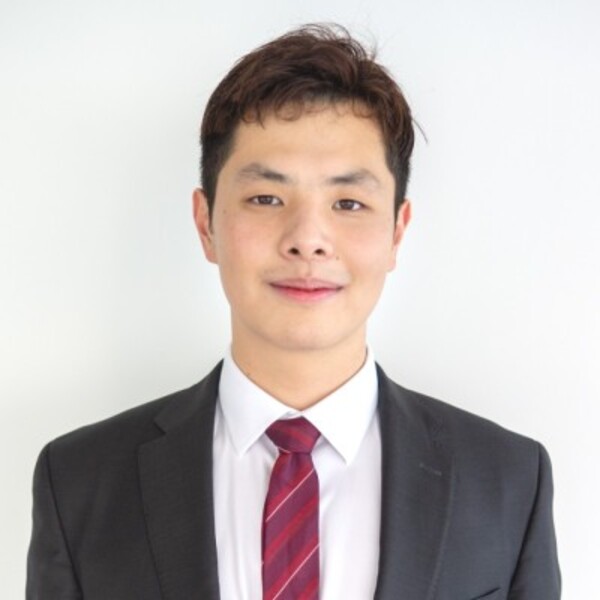Breadcrumbs
- Home
- Current Students
- Undergraduate Students
- Alan Zhuang
Alan Zhuang
Undergraduate Student Leader: Pharmacology and Toxicology

Personal Statement
Leadership is to deliver a positive impact by serving your team and the community. Successful leadership is enabled through constant learning and the willingness to break new ground. Similarly, effective teams are founded upon the breadth of diverse experiences, backgrounds, and identities, which foster innovation. Thus, through thoughtful and inclusive leadership roles, we can create a positive impact on the community exponentially beyond the abilities of any one individual.
In my first year, serving the community was a faint concept to me. Arriving in a new city and transitioning to university was exciting and daunting at once. Thankfully, the guidance of upper-year student mentors helped me navigate this new environment. Beyond the academic resources they provided, they helped lead me around the pitfalls and encouraged me towards academic success.
Recognising the impact of their mentorship, I was inspired to volunteer as a mentor for Woodsworth College in subsequent years. Over the next three years, I helped mentor cohorts totalling over 100 students, connecting with students from various backgrounds that spurred my growth as a mentor, enabling me to better understand a diverse range of cultures, subjects, and identities. Encouraged by the feedback of my mentees, I sought to further contribute to my community.
I joined the Pharmacology and Toxicology Students’ Association (PTSA) in my second year. Having been through the prolonged remote learning experience resulting from COVID-19, I envisioned rebuilding a tight-knit community of students and a robust professional network to ensure student success post-graduation. Supported by my peers, I was elected as the Co-President of the PTSA.
Working alongside a diverse team of motivated students, I introduced initiatives to empower the community by negotiating new sponsorships and securing grants (over $10,000) to triple our annual budget. This allowed us to improve our social events and introduce new networking opportunities for students to connect with one another. Additionally, we successfully inaugurated a new professional mentorship program that connected department students with working professionals, graduate students, and medical professionals.
Beyond the Department of Pharmacology, I yearned to create a lasting impact on the broader university community. This drove me to join the University of Toronto Consulting Association, where I was elected Vice President. Leading a team of over 70 students, we hosted case competitions, professional development workshops, and networking sessions to help University of Toronto students land their desired careers. I secured funding to make most events accessible for all students, ensuring that socioeconomic factors would not limit opportunities.
Concurrently, I led a consulting group comprising 40 students to engage in 8 projects empowering NGOs and start-up companies. Our projects ranged from helping animal shelters expand operations to providing market research to a biotech start-up focusing on early cancer diagnosis. Through this, we delivered enduring impact to community organisations and gave students hands-on consulting experience to jumpstart their careers. Working with a diverse team over the past two years, I developed communication skills and multidisciplinary knowledge that proved invaluable.
Furthermore, my communication and leadership skills were tested at MIT’s Grand Hack competition. I aimed to create a software platform to address the rampant cost of prescription pharmaceuticals in the United States, with some patients being charged 20 times more than others. This disproportionally affects patients of lower socioeconomic status, who are often underinsured. I designed a machine-learning model to protect patients against price discrimination by leveraging available datasets.
However, my success depended on leading and rallying a multidisciplinary team that could create a sound business plan for commercialisation as well as an attractive user interface. Piece by piece, our unique perspectives coalesced to form a whole more significant than the sum of its parts. We were awarded first place in the competition for the disruptive impact of our platform, laying a foundation for equitable healthcare.
As I pursue graduate school, I plan to continue uniting multidisciplinary teams to develop medical innovations that positively impact the global community. Diversity is vital to innovation. I had the opportunity to experience this first-hand while working as a research trainee at Brigham and Women’s Hospital, Harvard Medical School.
We were tasked with developing a biosensor for chronic inflammation alongside my lab mates, who were expert chemists and engineers. The synergistic amalgamation of our differing expertise enabled us to drive the project from a concept to a successful preclinical prototype. Working with them strengthened my engineering and chemistry foundation, giving me valuable skills fundamental to my current research.
As I progress through my career, I hope to continue using the leadership skills that I’ve gained to lead interdisciplinary research groups developing translational medical technologies. Through this, I hope to contribute to a healthier tomorrow. I am incredibly grateful for the opportunity to serve my community as a leader. Through mentorship and community building, I hope my actions have a meaningful impact on students and establish a solid foundation for the success of future student leaders. Their initiatives will continue to strengthen the vibrant student community at the University of Toronto.